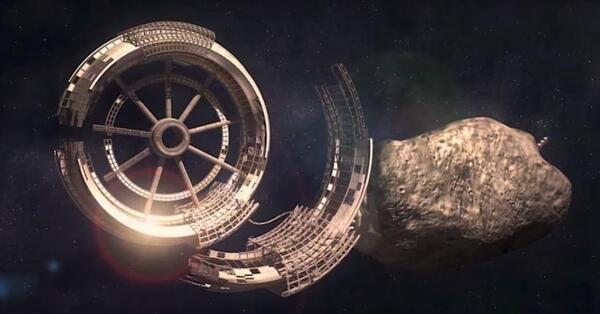Famous astrophysicist Neil deGrasse Tyson and Goldman Sachs share a common belief: The next trillion-dollar industry will be in the mining sector - in outer space.
Authored by Michael Kern via SafeHaven.com,
As Neil deGrasse Tyson puts it:
"The first trillionaire there will ever be is the person who exploits the natural resources on asteroids. There's this vast universe of limitless energy and limitless resources. I look at wars fought over access to resources. That could be a thing of the past, once space becomes our backyard."
While the renowned astrophysicist sees the potential for peace, Goldman Sachs sees the radical arrival of a trillion-dollar mining industry in the 21st Century.
It may sound like a long-term gamble, but Goldman has been eyeing improvements in technology and the trends toward lowers costs for manufacturing spacecraft.
A year ago, Goldman noted in a 98-page report:
"While the psychological barrier to mining asteroids is high, the actual financial and technological barriers are far lower. Prospecting probes can likely be built for tens of millions of dollars each and Caltech has suggested an asteroid-grabbing spacecraft could cost $2.6bn.”
So, science fiction is becoming the narrative of reality, and radical opinions are starting to seem rather sober.
All the more because the whole idea is being given a major boost in Luxembourg of all places.
Asteroid mining is being led by private sector interests that are dead set on making money in outer space.
Two of the leading companies formed with this in mind are California-based Deep Space Industries and Washington-based Planetary Resources. Both have been operating for several years, and both plan on profiting from asteroid mining.
But the tiny European country of Luxembourg is hoping to become the hub of cosmic mining—a tax haven banking center-turned-asteroid-exploiter. So it’s no mystery why Deep Space Industries, for instance, has offices both in Luxembourg as well and a partnership with the government of Luxembourg.
Luxembourg is home to a few communication satellite companies and has a similar asteroid mining law to the U.S. law, which makes the small nation an attractive alternative to the U.S. market. This European country sees massive opportunity and plans to be way ahead of the game.
"Our goal is to put into place an overall framework for the exploration and commercial use of resources from 'celestial bodies' such as asteroids, or from the moon," said Etienne Schneider, Luxembourg's Deputy Prime Minister and Minister of the Economy.
Once a famous steel producer, an experienced commercial satellite hub, and now famed for private banking and low-tax base, Luxembourg’s mining and financial backgrounds make it a prime candidate for the race to cosmic natural resources.
The first European private satellite operator, Société Européenne des Satellites, was launched in 1985 and today it’s...




